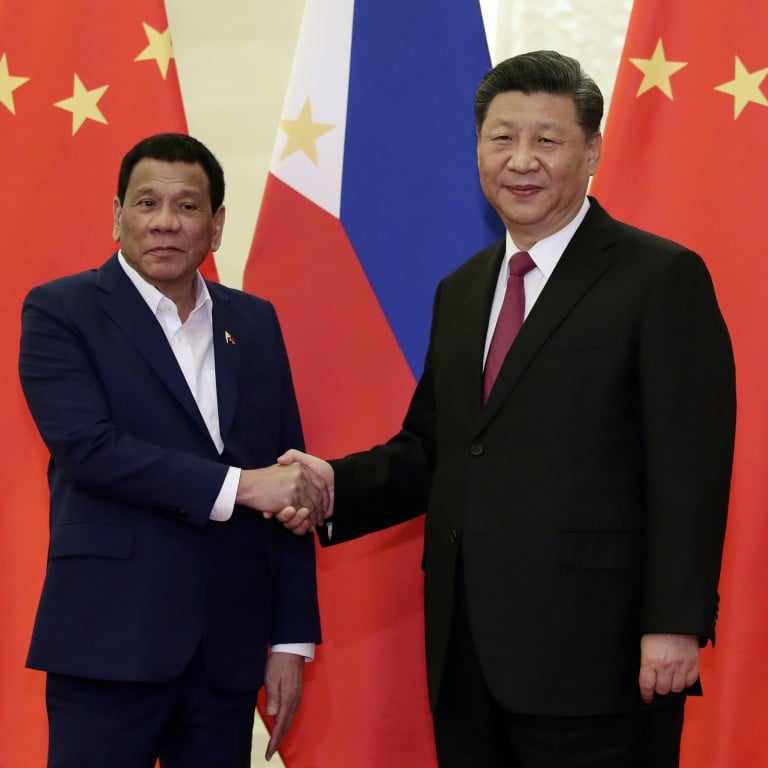
Letters | China-Philippines ‘gentleman’s agreement’ on South China Sea is best adhered to
- Readers discuss Beijing’s dealings with Manila over their dispute in the South China Sea, and Moscow’s changing attitude to the Belt and Road Initiative
The existence of the agreement was made public by Rodrigo Duterte’s foreign secretary Alan Peter Cayetano in his 2017 conversation with the Council on Foreign Relations wherein he stated that there was “a gentleman’s agreement, a shake of the hands” between Duterte and Chinese President Xi Jinping in order “to have the status quo”. The video and transcript of Cayetano’s conversation are freely available on the internet, so this gentleman’s agreement is hardly a secret.
On November 12, 1999, an Associated Press report carried by Mariannas Variety News & Views reported Estrada’s spokesperson Jerry Barican as saying the Philippines had assured China that “efforts will be made to immediately extricate the vessel from the shoal”. So far, Manila does not seem to have presented any official rebuttal of this report, or of Poling’s statement.
The current Philippine president, Ferdinand Marcos Jnr, should honour these well-documented promises. Unilaterally or maliciously reneging on them could well provoke a war.
At the very least, such reneging could endanger Asean peace, as well as the Association of Southeast Asian Nations’ consensus on not being a proxy for any power. This consensus was recently highlighted by Singaporean foreign minister Vivian Balakrishnan in Manila, where he met his Philippine counterpart Enrique Manalo.
W.L. Chang, Discovery Bay
China’s and Russia’s rail links in Central Asia won’t clash
Yes, 10 years ago we may have been too suspicious by half, but we have a phrase in Russian – a road belongs to the world – that partly explains our changing attitude.
Besides, China’s original Silk Road during its 1,500 years of existence till it was severed by the Ottoman empire five centuries ago was just that, a commercial route which to my knowledge was never used for transporting troops. Seeing as now, unlike Nato, China is not moving its soldiers to our border, we regard Chinese President Xi Jinping as a safe pair of hands.
I am sure that, like in Russia, very few in Central Asia have managed to learn Chinese. I am personally gobsmacked by the homophonous words in Chinese more than the characters. It’s a different kettle of fish with our former republics in Europe where people are actively learning English.
Some situations are perfectly expressed in English. So our train and your train in Central Asia will pass “like ships that pass in the night”, with no country adversely affected.
Mergen Mongush, Moscow

